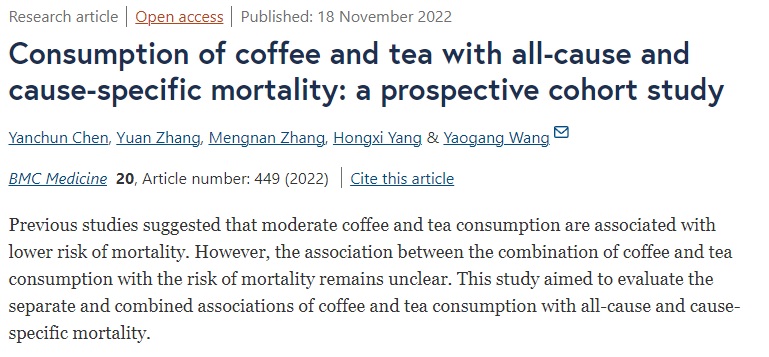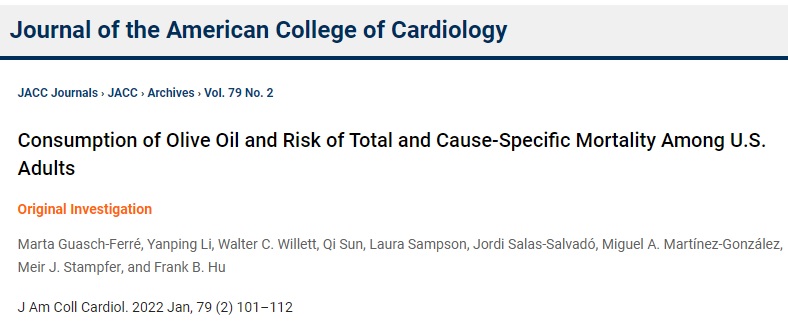Longevity Secrets: Timeless Practices for a Healthier Future

When it comes to bolstering longevity and wellness, the available research on all-cause mortality is certainly at a premium.
All-cause mortality might seem like a morbid subject.
But what it’s really about is maximising the time we have ahead of us.
And the quality of that time.
Making beneficial changes to all-cause mortality is about dietary and lifestyle habits that are believed to prolong life and promote overall health.
And these types of interventions are strong enough to send a signal to researchers during their number-crunching analysis.
By targeting factors that contribute to premature death across multiple disease categories, efforts to reduce all-cause mortality can lead to improved health outcomes for populations and increased life expectancy.
And that life-promoting signal across a population indicates that the particular intervention does something positive for human health and wellness.

All-cause mortality basically means death due to any cause.
It is often used during statistical analysis by epidemiologists, who retroactively look at populations to gain insight into what impacts health.
For instance, looking at a particular population residing within a particular city may indicate that those who consumed one or more apples each day were less likely to die within the next ten years, compared to those who ate none or less than seven per week.
But the skeptics decree, correlation does not equal causation!
Though sometimes it can.
The apple can be a proxy, a marker for someone who is more likely to exercise, eat a healthy diet and manage their stress levels.
Hence the apple itself may not necessarily carry the full weight of benefit that the researchers found.

It could be just a detectable marker of a healthy lifestyle.
There are many confounding variables that need to be removed from the equation before the true benefit of the apple can be considered as something that reduces all-cause mortality.
And this is where quality researchers crunch the numbers and publish a well thought-out paper that truly reflects the nature of the studied intervention.
Therefore, when they say it’s the apple, you can be quite certain that it is.
There are two approaches to impacting all-cause morality if you want to live longer (lifespan) and healthier (healthspan).
The first is including interventions shown to reduce all-cause mortality, like coffee drinking and fish oil supplementation.
Secondly, exclude interventions that increase all-cause mortality, like smoking and sleep deprivation.
This article will be covering interventions that may reduce all-cause mortality for inclusion.
But of course, please seek the council of your healthcare practitioner, whether it be a Naturopath or Holistic Doctor, to discuss any dietary, supplemental or lifestyle changes to ensure they are appropriate for you as an individual.
What All-Cause Mortality Isn’t
All-cause mortality primarily focuses on lowering the risk of death from factors that are within human control or influence, such as chronic disease, accidents, and other preventable causes.
While efforts to reduce all-cause mortality may indirectly contribute to improvements in overall safety and disaster preparedness, they do not specifically target rare events like asteroid strikes or volcano eruptions.

Coffee & Tea: Elixir’s of Life?
Coffee and tea have long been cherished beverages worldwide, deeply ingrained in cultural and social rituals. Beyond their comforting aroma and stimulating effects, emerging research suggests that these brews hold profound health benefits.
A prospective cohort study, published in BMC Medicine in 2022, delves into the intricate relationship between coffee, tea, and human longevity.
Conducted by a team of researchers, the study aimed to investigate the association between coffee and tea consumption and mortality rates. Spanning over years and involving thousands of participants, the findings shed light on the potential protective effects of these beverages against all-cause mortality and specific causes such as cardiovascular disease and cancer.

Both coffee and tea boast an impressive array of bioactive compounds, including polyphenols, flavonoids, and antioxidants, which play pivotal roles in promoting health and combating diseases.
Here are some key benefits highlighted by the study:
- Cardiovascular Health: Regular consumption of coffee and tea has been linked to a reduced risk of cardiovascular disease, including coronary heart disease and stroke. The antioxidants present in these beverages help in lowering inflammation, improving endothelial function, and assist in the regulation of blood pressure.
- Cancer Risk: The study suggests that coffee and tea consumption may contribute to a lower risk of certain types of cancer, such as liver, colorectal, and prostate cancer. Polyphenols found abundantly in tea, particularly green tea, possess anti-carcinogenic properties, inhibiting the growth of cancer cells and promoting their apoptosis.
- Neurological Protection: Both coffee and tea have been associated with a reduced risk of neurodegenerative diseases, such as Alzheimer's and Parkinson's disease. Caffeine, a central component in coffee, enhances cognitive function and protects against age-related cognitive decline. Additionally, tea polyphenols exhibit neuroprotective effects by reducing oxidative stress and inflammation in the brain.
- Metabolic Health: Regular consumption of coffee and tea has been linked to improved metabolic parameters, including glucose metabolism, insulin sensitivity, and lipid profile. These beverages aid in weight management and may lower the risk of metabolic disorders like type 2 diabetes.
The protective effects of coffee and tea can be attributed to their rich phytochemical content and their impact on various physiological processes:
- Antioxidant Activity: Polyphenols and antioxidants found in coffee and tea scavenge free radicals, neutralising oxidative stress and preventing cellular damage.
- Anti-Inflammatory Properties: Both beverages exhibit potent anti-inflammatory effects, suppressing inflammatory pathways implicated in chronic diseases.
- Modulation of Gut Microbiota: Coffee and tea promote a healthy gut microbiome, which plays a crucial role in immune function, nutrient absorption, and overall well-being.

This research published in BMC Medicine underscores the remarkable health benefits of coffee and tea consumption. From promoting cardiovascular health to reducing the risk of chronic diseases, these beloved beverages offer more than just a morning pick-me-up.
While further research is warranted to elucidate the precise mechanisms of action, incorporating moderate amounts of coffee and tea into one's daily routine may serve as a simple yet potent strategy for enhancing longevity and well-being.
So, brew a cup, savour the aroma and drink to good health!
Fish Oil Insights from a Population-Based Cohort Study
In the realm of nutritional supplements, few have garnered as much attention and acclaim as fish oil.
Whether it’s liquid, capsule or as part of a gourmet kitchen cook-up, fish oil has been associated with optimal health for a long time due to its content of omega-3 fatty acids, particularly eicosapentaenoic acid (EPA) and docosahexaenoic acid (DHA).
A groundbreaking study published in the British Medical Journal in 2020 delves into the profound impact of fish oil supplementation on cardiovascular outcomes and overall mortality within a large population-based cohort.
Led by a team of esteemed researchers, the study aimed to investigate the associations between habitual fish oil supplementation and cardiovascular events, such as heart attack and stroke, as well as all-cause mortality.
The findings of the study shed light on the significant associations between fish oil supplementation and cardiovascular health:
- Reduced Risk of Cardiovascular Events: Participants who habitually supplemented with fish oil exhibited a lower risk of experiencing cardiovascular events, including myocardial infarction (heart attack) and cerebrovascular accident (stroke). The omega-3 fatty acids present in fish oil exert cardioprotective effects by reducing inflammation, improving blood vessel function, and lowering triglyceride levels, thus mitigating the risk of atherosclerosis and thrombosis.
- Lower All-Cause Mortality: In addition to cardiovascular benefits, habitual fish oil supplementation was associated with a decreased risk of all-cause mortality. The omega-3 fatty acids EPA and DHA offer multifaceted health benefits, ranging from anti-inflammatory and antioxidant effects to modulation of immune function and gene expression, which may contribute to enhanced overall longevity.
- Dose-Dependent Effects: The study observed a dose-response relationship between fish oil supplementation and cardiovascular outcomes, with higher doses correlating with greater reductions in cardiovascular risk. This underscores the importance of consistent and adequate intake of omega-3 fatty acids to reap maximal health benefits.
This research provides compelling evidence supporting the all-cause mortality benefits of habitual fish oil supplementation. Omega-3 fatty acids present in fish oil offer a potent ally in the fight against heart disease and mortality.

By incorporating fish oil supplements or fatty fish into one's daily routine, alongside a balanced diet and healthy lifestyle choices, individuals can take proactive steps towards safeguarding their cardiovascular health and well-being.
Liquid Gold: The Impact of Olive Oil
Olive oil has been cherished for centuries for its culinary versatility and health-promoting properties. A groundbreaking study published in the Journal of the American College of Cardiology in 2022delves into the profound impact of olive oil consumption on mortality rates and sheds light on its potential role in disease prevention.
The study sought to investigate the associations between olive oil consumption and total mortality, as well as cause-specific mortality among U.S. adults.
Leveraging data from a comprehensive cohort study, the findings offer invaluable insights into the potential health benefits of incorporating olive oil into one's dietary regimen.
Olive oil is renowned for its rich array of bioactive compounds, including monounsaturated fatty acids (MUFA), polyphenols, and antioxidants, which confer numerous health benefits:
- Cardiovascular Protection: Regular consumption of olive oil has been consistently linked to a reduced risk of cardiovascular diseases, including coronary artery disease, stroke, and hypertension. The high content of oleic acid, a monounsaturated fat, helps lower LDL cholesterol levels, improve endothelial function, and reduce inflammation within blood vessels, thus promoting heart health.

- Anti-inflammatory Effects: Olive oil exerts potent anti-inflammatory properties, which play a pivotal role in mitigating chronic inflammation implicated in various diseases, including cardiovascular disease, diabetes, and cancer. Polyphenols such as oleuropein and hydroxytyrosol act as powerful antioxidants, scavenging free radicals and dampening inflammatory pathways.
- Cancer Prevention: Emerging evidence suggests that olive oil may confer protective effects against certain types of cancer, including breast, colon, and prostate cancer. The bioactive compounds in olive oil inhibit tumor growth, induce apoptosis (programmed cell death), and suppress angiogenesis (formation of new blood vessels), thus thwarting cancer progression.
- Metabolic Health: Olive oil consumption has been associated with improved metabolic parameters, including insulin sensitivity, glucose metabolism, and lipid profile. The monounsaturated fats in olive oil help regulate blood sugar levels and insulin sensitivity, reducing the risk of metabolic disorders such as type 2 diabetes and metabolic syndrome.
The health-promoting effects of olive oil can be attributed to its unique composition, containing monounsaturated fatty acids and beneficial polyphenols.
This culinary gem not only tastes amazing on a range meals but also offers a myriad of advantages for human health and longevity. By incorporating olive oil into one's dietary pattern, alongside a balanced and wholesome diet, individuals can harness the power of "liquid gold" to nourish their bodies, ward off disease, and embrace a vibrant and fulfilling life.
Organic and Australian grown are the best ways to go for quality olive oil, given the commonality of adulteration practices overseas.
So find yourself a premium product, then drizzle, dip, and enjoy incorporating olive oil into your daily diet.
The Impact of Food Groups on Mortality Risk
In the pursuit of a long and vibrant life, the role of diet cannot be overstated. A study published in the American Journal of Clinical Nutrition in 2017 looked at the associations between various food groups and mortality risk. This ground-breaking study sheds light on the profound impact of dietary choices on human health and longevity.
The study investigated the relationship between food groups and the risk of all-cause mortality. By analysing data from a multitude of prospective studies, the findings provide valuable insights into the potential benefits of incorporating specific food groups into one's diet to mitigate mortality risk.

Proposed Benefits of Food Groups: The study highlights the diverse array of food groups that exhibit protective effects against all-cause mortality:
- Fruits and Vegetables: Rich in essential vitamins, minerals, antioxidants, and dietary fiber, fruits and vegetables are cornerstone components of a healthful diet. Regular consumption of these nutrient-dense foods has been associated with a reduced risk of chronic diseases, including cardiovascular disease, cancer, and diabetes. The phytochemicals present in fruits and vegetables exert antioxidant and anti-inflammatory effects, which help combat oxidative stress, neutralize free radicals, and promote cellular health.
- Whole Grains: Whole grains, such as brown rice, quinoa, oats, and whole wheat, are rich in fiber, vitamins, minerals, and phytonutrients. Studies suggest that incorporating whole grains into the diet can lower the risk of chronic diseases, including heart disease, stroke, and type 2 diabetes. The complex carbohydrates in whole grains provide sustained energy, regulate blood sugar levels, and promote satiety, thus supporting weight management and metabolic health.
- Nuts and Seeds: Nuts and seeds are nutrient powerhouses, packed with healthy fats, protein, fiber, vitamins, minerals, and antioxidants. Regular consumption of nuts and seeds has been linked to a reduced risk of cardiovascular disease, cancer, and all-cause mortality. The monounsaturated and polyunsaturated fats in nuts and seeds help lower LDL cholesterol levels, reduce inflammation, and improve endothelial function, thereby protecting heart health.
- Fish and Seafood: Fish and seafood are abundant sources of high-quality protein, omega-3 fatty acids, vitamins, and minerals. Consumption of fatty fish, such as salmon, mackerel, and sardines, has been associated with a lower risk of cardiovascular disease, stroke, and mortality. Omega-3 fatty acids, particularly EPA and DHA, exhibit anti-inflammatory, antiarrhythmic, and vasodilatory effects, which promote cardiovascular health and reduce the risk of adverse cardiac events.
The protective effects of these food groups on mortality risk can be attributed to their unique composition and mechanisms of action:
- Antioxidant and Anti-inflammatory Properties: Fruits, vegetables, whole grains, nuts, seeds, and fish are rich in antioxidants and anti-inflammatory compounds, which help combat oxidative stress, inflammation, and cellular damage, thereby reducing the risk of chronic diseases and mortality.
- Nutrient Density: These food groups are dense in essential nutrients, including vitamins, minerals, fiber, and healthy fats, which support optimal physiological functioning, immune response, and overall well-being.
This information underscores the pivotal role of food groups in shaping mortality risk and promoting human health. By embracing a diverse and balanced diet rich in fruits, vegetables, whole grains, nuts, seeds, and fish, individuals can nourish their bodies, fortify their defenses against disease, and embark on a journey towards longevity and vitality.
Let food be thy medicine, and let these wholesome foods pave the way to a healthier, happier, and more fulfilling life.
Insights from a Landmark Study on Dietary Fiber
In the pursuit of optimal health and longevity, dietary choices play a pivotal role. A groundbreaking study published in the journal Nutrients in 2022, titled "Association of Dietary Fiber Intake with All-Cause Mortality and Cardiovascular Disease Mortality: A 10-Year Prospective Cohort Study," sheds light on the profound impact of dietary fiber consumption on mortality rates.
Led by a team of esteemed researchers, the study aimed to explore the associations between dietary fiber intake and all-cause mortality, as well as cardiovascular disease mortality, over a decade-long period. Leveraging data from a prospective cohort study, the findings offer invaluable insights into the potential health benefits of incorporating fiber-rich foods into one's diet.
Dietary fiber encompasses a diverse array of plant-derived carbohydrates that are resistant to digestion by human enzymes. Different types of fiber, including soluble and insoluble fiber, offer distinct health benefits:
- Soluble Fiber: Soluble fiber, found abundantly in oats, barley, legumes, and certain fruits and vegetables, dissolves in water to form a gel-like substance in the digestive tract. Proposed benefits of soluble fiber include:
- Heart Health: Soluble fiber helps lower LDL cholesterol levels by binding to cholesterol particles and promoting their excretion from the body. This can reduce the risk of cardiovascular disease, including heart attack and stroke.
- Blood Sugar Regulation: Soluble fiber slows down the absorption of glucose, preventing rapid spikes in blood sugar levels after meals. This is particularly beneficial for individuals with diabetes or insulin resistance.
- Insoluble Fiber: Insoluble fiber, prevalent in whole grains, nuts, seeds, and many vegetables, adds bulk to stool and promotes regular bowel movements. Key benefits of insoluble fiber include:
- Digestive Health: Insoluble fiber adds bulk to stool, facilitating bowel movements and alleviating constipation. It also helps maintain a healthy balance of gut bacteria, supporting overall digestive function.
- Weight Management: Insoluble fiber contributes to satiety and feelings of fullness, which can aid in weight management by reducing overall calorie intake and promoting a healthy body weight.
The health-promoting effects of dietary fiber are attributed to several mechanisms:
- Improved Gut Health: Dietary fiber serves as a prebiotic, nourishing beneficial gut bacteria and promoting a healthy microbiome. This supports digestive health, enhances nutrient absorption, and strengthens the gut barrier function.
- Regulation of Lipid and Glucose Metabolism: Soluble fiber binds to bile acids and cholesterol, facilitating their excretion from the body and lowering blood lipid levels. Additionally, fiber slows down carbohydrate absorption, stabilizing blood sugar levels and improving insulin sensitivity.
- Anti-inflammatory Effects: Certain types of fiber possess anti-inflammatory properties, modulating immune responses and reducing chronic inflammation associated with various diseases, including cardiovascular disease and metabolic disorders.
In conclusion, the research published in Nutrients highlights the significant associations between dietary fiber intake and mortality rates. From promoting heart health to supporting digestive function and weight management, the diverse array of fiber types offers multifaceted benefits for human health and disease prevention.
By prioritizing fiber-rich foods such as fruits, vegetables, whole grains, legumes, nuts, and seeds, individuals can nourish their bodies, enhance longevity, and embrace a vibrant and fulfilling life. So, fiber up and reap the rewards of a wholesome and fiber-rich diet for optimal well-being!
Exploring the Role of Protein in Longevity and Well-being
Protein, often hailed as the building block of life, plays a crucial role in supporting overall health and vitality, particularly as we age. A groundbreaking study published in BMC Geriatrics in 2023, titled "Dietary protein intake and all-cause mortality: results from The Kawasaki Aging and Wellbeing Project," sheds light on the profound impact of protein consumption on mortality rates among older adults.
Protein serves as a critical nutrient essential for numerous physiological functions, including muscle maintenance, immune function, hormone production, and tissue repair.
Here are some key benefits associated with protein and essential amino acids:
- Muscle Health: Adequate protein intake is essential for preserving muscle mass and strength, particularly in older adults. Essential amino acids, the building blocks of protein, stimulate muscle protein synthesis, helping to counteract age-related muscle loss and sarcopenia.
- Bone Health: Protein plays a crucial role in maintaining bone density and strength. Essential amino acids such as lysine and arginine contribute to collagen synthesis, which forms the structural framework of bones and supports bone mineralization.
- Immune Function: Protein is integral to immune function, as antibodies, enzymes, and immune cells are composed of protein. Essential amino acids like glutamine and cysteine support immune cell proliferation and activity, enhancing the body's ability to defend against infections and diseases.
- Metabolic Health: Protein-rich diets have been associated with improved metabolic health, including weight management, insulin sensitivity, and lipid profile. Essential amino acids regulate appetite, promote satiety, and modulate metabolic pathways involved in glucose and lipid metabolism.
Possible Mechanisms of Action: The health-promoting effects of protein and essential amino acids are attributed to several mechanisms:
- Muscle Protein Synthesis: Essential amino acids, particularly leucine, stimulate muscle protein synthesis, leading to muscle repair, growth, and maintenance. This helps counteract age-related muscle loss and preserve functional capacity in older adults.
- Hormone Regulation: Protein intake influences the secretion of hormones involved in metabolism, appetite regulation, and muscle growth, such as insulin, glucagon, and growth hormone. This can have beneficial effects on metabolic health and body composition.
- Immune Modulation: Essential amino acids play a crucial role in immune cell function and antibody production, supporting the body's defense against pathogens and foreign invaders.
In conclusion, the research published in BMC Geriatrics underscores the importance of dietary protein intake in promoting longevity and well-being among older adults. From preserving muscle mass and strength to supporting immune function and metabolic health, protein and essential amino acids offer multifaceted benefits for human health and disease prevention.
By incorporating protein-rich foods such as lean meats, poultry, fish, eggs, dairy products, legumes, nuts, and seeds into their diet, individuals can optimize their nutritional intake and enhance their overall quality of life as they age. So, savor the power of protein and embrace a vibrant and active lifestyle for years to come!











